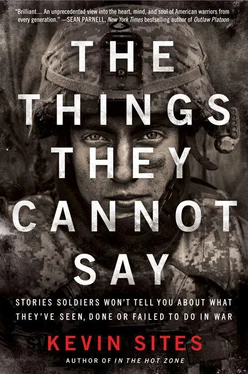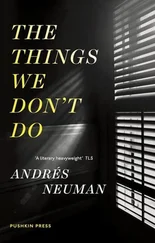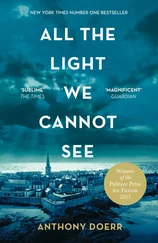“I do still have the small Koran and will keep it until the day I die. My last deployment I had the Koran with me as well, even though her and I had been split up for over two years. I will carry it again when I go to Afghanistan in the near future.”
Auton’s perspective on killing hasn’t changed much either, despite the fact that he’s now an older, experienced leader. “I must say that with my time deployed I feel outstanding for every life that I have taken,” he says in an e-mail. “I know now that those men that I personally killed would have killed me or my buddy to the left or right at any chance they could have gotten. I am glad I am the one who could take their life. I feel as if I saved many lives by doing so. I would do it all a million times over if I had to or need to for my fellow Soldiers and country!!”
While this response might seem overly gung-ho or even callous for those who haven’t shared his experiences, during my time with him Mikeal Auton convinced me that he’s a reasonable, polite and well-adjusted individual. But unlike many of his fellow soldiers struggling with their experiences of killing and seeing others killed, he, at least at for now, seems unfazed by the deadly business in which he has been employed for the last third of his life.
Psychiatrists, psychologists, sociologists, anthropologists and all other manner of social scientists have struggled with the idea of killing and how we live with ourselves in the aftermath of having taken the lives of others. The psychological concept of the “shadow self” looms large here. The idea was first advanced by Swiss psychiatrist Carl Jung, who wrote in his study Psychology and Religion: West and East , “Everyone carries a shadow and the less it is embodied in the individual’s conscious life, the blacker and denser it is.”
It’s a Western variation on the Chinese philosophy of yin and yang, where opposite forces, light and dark, masculine and feminine, coexist and are interdependent on each other. But unlike yin and yang, where these opposites are not necessarily distinctions between good and evil, Jung believed the shadow was a receptacle for human darkness, but also a place of creativity. Many scholars of war have interpreted the shadow as the best way to explain the human capacity for killing and our response to it.
In The Warriors: Reflections on Men in Battle , the philosopher and World War II combat veteran J. Glenn Gray wrote, “Becoming a soldier was like escaping from one’s own shadow. To commit deeds of violence without the usual consequences that society visits upon the violent seemed at first a bit unnatural but for many not unpleasant. All too quickly it could become a habit.”
For a rare few, the shadow is the dominant or conscious, rather than subconscious, force in life. They’re commonly referred to as sociopaths or psychopaths. According to Dr. Martha Stout in her book The Sociopath Next Door , the 4 percent of the American population in this category lacks any trait of empathy or remorse even when it comes to killing other people. Though there are no clear statistics on the number of sociopaths in the military as opposed to the rest of society (there are psychological screenings in place intended to weed them out from military service), it would seem a fair number would tend to gravitate toward a profession where lack of emotion in the face of death could be considered a virtue.
For the other 96 percent of us, our ability to kill may simply be enabled by our shadow self, but its consequences are borne by our other half. For some, that burden is permanently debilitating, regardless of the circumstances. For others, it may be compartmentalized or shuffled somewhere in the folds of the mind, where it’s contained and does not interfere daily with an otherwise normal life. And it may be this group in which the early experiences of one’s life profoundly affect that person’s ability to reabsorb their shadow self into its interstitial space and keep it fully in check when not at war.
Auton, I realize, lives in that place where bullets and background intersect. The hard realities of rural poverty he experienced as a child and that he learned to contain, rather than let them define him, prepared him quite thoroughly, it seems, for the things he would have to do in war.
“To be honest with you—this sounds weird or hard to understand—you just put it behind you,” Auton tells me during a telephone call. “You can’t live in the past; you have to live in the present.”
Far from judging him, I have great respect for his reasoning and his ability to steady himself in the face of powerfully destabilizing experiences. I envy the inner strength and resolve by which he has “soldiered” on, while I, who have taken a life by the confused incompetence of inaction rather than pulling a trigger, sometimes have had difficulty in finding both meaning and worth for my own life in the aftermath of the incident.
And for Auton, living in the present is certainly preferable, considering how he grew up in rural Lenoir, North Carolina, bordering the Pisgah National Forest, sixty miles northwest of Charlotte. Auton was the third youngest of four siblings, an older brother and sister and a younger brother.
“I grew up in a very poor family. I remember days where I would heat water on a kerosene heater in order to have hot water for a bath,” says Auton. “I always knew what I would have for dinner when I got home from school because it was always cabbage and potatoes.”
Auton’s parents were divorced and he says his mother focused more on other men than her children.
“My sister and I were always close to each other and she is still the only one I speak to this day out of my family. My sister and I came home from school one day and found a note on the kitchen table with some money, I think around three hundred dollars. I was around ten years old if I remember right. The note said, ‘Here is the next two months’ rent, I hope you can find a place to live.’” He says his mother left with a man she had known for a few weeks.
His sister, Elizabeth, was fifteen at the time and had an older boyfriend whose family took them both in and raised them, Auton says, like they “were their own children,” for the next eight years of his life.
But by his senior year in high school he became rebellious and moved in with some other friends, hitting the streets at night, drinking and getting into a little bit of trouble. He says he struggled through his senior year of high school but kept it together just enough to graduate. His sister married the same man she was with when their mother left them. But Auton says he has no idea where his mother or brothers are. He broke off relations with his father when he refused to take them in after they were abandoned. He says because he was abandoned by his parents a lot of people looked at him as a lowlife, a “bottom-feeder.” That motivated him to prove them wrong and do something with his life. That’s when he decided to join the Army.
To Auton, the Army became the family he felt he never had. It seemed to give him all the basic things his own did not: food, shelter, clothing, money and, perhaps equally important, people to share the challenges and successes of life with. But while the Army helped him to feel like he was part of a community, Auton’s past taught him not to invest too deeply in emotions. Being able to contain the hardships and unhappiness of his childhood allowed him to “move on,” as he said, and live in the present. He would use the same skills, successfully, to push past the darkness and trauma of war.
It wasn’t always easy. When Auton became a leader in the Army, he became responsible for the health and well-being of his men, which required a closeness that made him more vulnerable, though as always he did his best to contain that as well. When Auton was deployed again to Iraq in 2006, his unit was focused on helping to clear insurgents out of Ramadi in the Sunni-dominated al-Anbar Province. A well-liked twenty-two-year-old sergeant named Edward Schaeffer was part of Auton’s squad. Auton says Schaeffer was so smart, they nicknamed him “the Brain.” But that November, while on patrol, the lead vehicle of Auton’s convoy hit an improvised explosive device and the Bradley burst into flames. The driver was Schaeffer. He was blown out of the hatch and landed ten feet away in a ball of flames. Another soldier put him out with a fire extinguisher. His burns were so severe, he later died from them. Auton admits the death affected him.
Читать дальше












